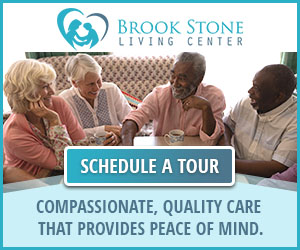10 Facts Your Occupational Therapist Wants You to Know
Imagine not being able to button your shirt or brush your teeth.
What if you were no longer able to perform the routine tasks you once did every day?
Injuries, strokes and other health complications can take away your ability to complete tasks involved in everyday living. In these cases, an occupational therapist will work closely with you to help you regain as much independence as possible.
What is an Occupational Therapist?
These therapists help you regain skills that you may have lost due to injury or illness. They may provide information on assistive equipment, which are tools designed to help you perform a task. For example, an occupational therapist may show you how to use a special tool to help you put on your socks.
What’s the Difference in Occupational vs. Physical Therapy?
It can be confusing to determine the difference in occupational vs. physical therapy. In fact, most people don’t know what occupational therapists do or how they help people.
While a physical therapist concentrates on restoring movement, an occupational therapist helps you regain the ability to perform tasks of daily living.
These tasks may include shaving, buttoning a shirt or folding laundry.
The goal of occupational therapy and occupational therapy rehabilitation centers is to help you regain as much independence as possible.
In addition, occupational therapy focuses on activities that are important to each individual. For example, for one person this may mean playing cards, and the occupational therapist would work closely with them to fine-tune the motor skills needed to make this possible.
Occupational therapists may work at occupational therapy centers or short-term rehabilitation centers. They may also see people on an outpatient basis.
What Conditions Do Occupational Therapists Treat?
You may think that occupational therapists only work with the elderly or with those who have had joint replacements. In actuality, they help those with a variety of health problems including:
- Chronic, painful arthritis
- Stroke
- Traumatic brain injury

- Diabetes
- Multiple sclerosis
- Balance problems
- Those with birth defects
- Alzheimer’s disease
- Spinal cord injuries
- Poor vision
- Mental health issues
If you or someone you love has any of these conditions, perhaps an occupational therapist could help you.
10 Facts About Occupational Therapy You Should Know
We wanted to review a few facts that your occupational therapist wants you to know.
- Occupational therapists have a wide variety of resources to help you.
This may include much more than assistive equipment. Often, occupational therapists work closely with your entire health care team to help determine the best course of action so you can complete tasks required for everyday living.
- Occupational therapy extends beyond mere exercises.
Of course, exercises are part of occupational therapy, but they are only one aspect of treatment. Occupational therapists may perform cognitive tests to see how your mind is functioning. They will also help you “practice” doing tasks such as buttoning your shirt or tying your shoes.
- Occupational therapy doesn’t include helping people find jobs.
We know it can be confusing. When you hear the word “occupation,” you may immediately think of jobs or a career. While occupational therapists can help you develop the motor skills needed at many jobs, their primary role is to work with you so you can complete everyday tasks easily.
- Occupational therapists work with more than just hands.
Many are under the impression that occupational therapists only work with hands to develop fine motor skills. Actually, occupational therapists can work on any part of the body. In addition, they also work with you on cognition as well.
- Occupational therapists work with patients in short-term rehabilitation centers.
Of course, they work with those in long-term facilities as well, but one of the main goals of occupational therapists is to get you to live as independently as possible. If you’re in a short-term rehabilitation center, these goals center on your activities of daily living. Occupational therapists also work with patients in hospitals.
- You should let your occupational therapist know about your goals.
If it’s important to you, it’s important to your occupational therapist. By letting him or her know what activities are most important to you, they can help gear your treatments toward that. For example, if you love playing cards, they may work with you on how to regain the ability to shuffle cards and deal them.
- If you are experiencing anxiety or depression, let your occupational therapist know.
Occupational therapists care for the whole patient. Sometimes, it can be frustrating and alarming to have to relearn everyday tasks that you once performed easily. This requires a lot of patience and practice. Because OTs are concerned about your overall health, they can help you discover new ways to cope with these thoughts and feelings.
- It takes time.
Chances are, you put on your clothes, brushed your teeth and combed your hair for years without giving it a second thought. Now those same tasks can be challenging. Remember that success doesn’t automatically come overnight. It may take several attempts before you’re comfortable and able to perform these tasks as you once did. Don’t be discouraged.
- It takes extensive training to become an occupational therapist.
What kind of training does it take to become an occupational therapist? Typically, it requires a master’s degree with a bachelor’s degree in a science-related field. They also need to get hands-on experience through participating in clinical rounds.
- Your occupational therapist is on your side.
Your occupational therapists work closely with your whole health care team to present a health care plan that takes into account your goals, wishes and your abilities. They are on your side and will tailor a course of recovery that will best suit you.
Learn More About Our Occupational Therapy Rehabilitation Center at Brook Stone
Life is challenging enough. When you’re facing that challenge without the skills and abilities you need to be a success, you can easily feel overwhelmed.
Occupational therapists are not only trained to help you get the most out of your life, but they also help you with cognitive issues. If you’re having trouble performing a task such as putting on socks, they can provide specialized tools to help you. They’ll also teach you the best way to use these tools.
See Why Our Residents Love Brook Stone
Brook Stone is a quiet, peaceful and relaxing environment where our residents thrive. Through our extensive services, we can provide care for you or your loved one that brings peace of mind so you don’t have to worry.
Our residents love calling Brook Stone home. Schedule an appointment to talk to one of our representatives. We’d love to give you a tour.


